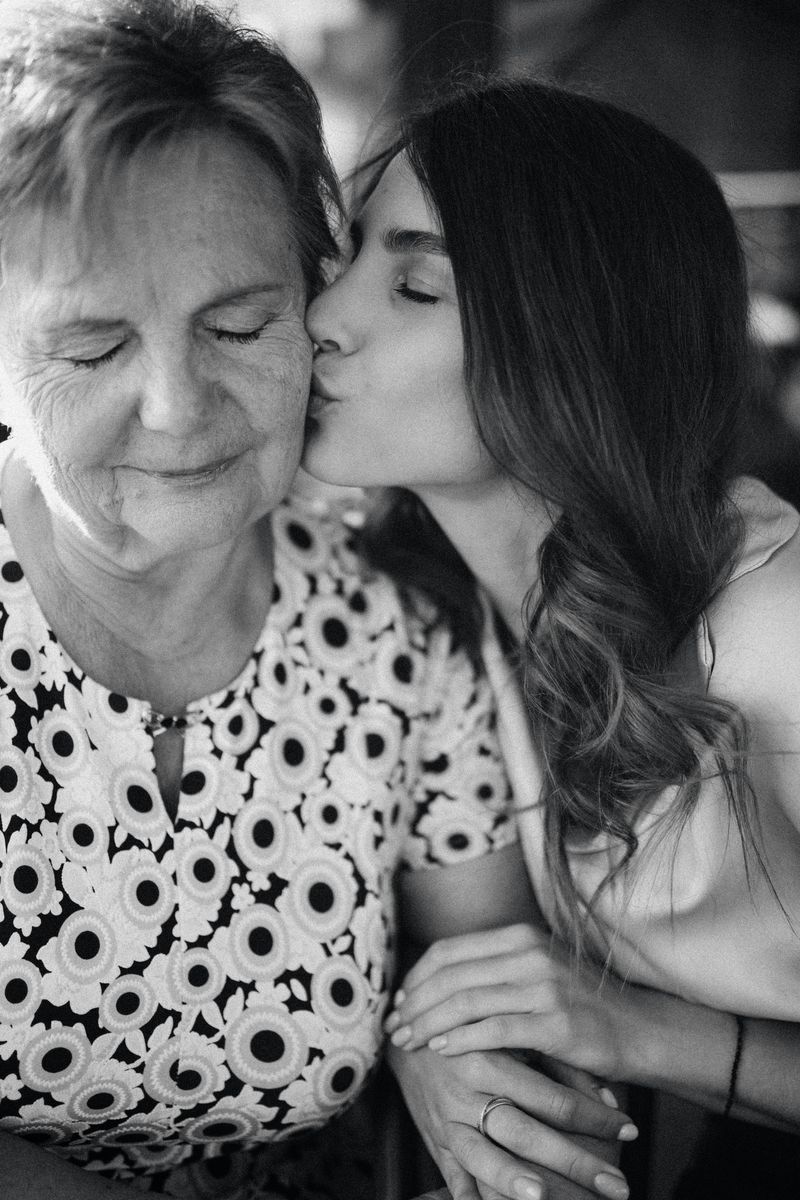10 Things Boomers Say With Love That Younger Generations Always Misinterpret

Communication between generations has always been tricky, but never more so than today. Baby Boomers grew up in a different world, with different values and communication styles that sometimes clash with how younger folks express themselves. What Boomers intend as loving concern or helpful wisdom often lands as criticism or judgment to Millennial and Gen Z ears. Let’s explore these well-meaning phrases that somehow get lost in generational translation.
1. “Call me when you get home.”

Parental concern manifests differently across generations. When Boomers ask for that post-journey check-in, they’re expressing love through practical safety measures, not doubt in your abilities. Their generation grew up without cell phones, GPS tracking, or instant messaging – a world where uncertainty lasted hours or days, not minutes.
For them, this simple request represents peace of mind, rooted in genuine worry rather than helicopter parenting.
2. “You should get a real job.”

For Boomers, financial security was a hallmark of success. Their generation benefited from sustained economic growth where staying with one company usually guaranteed a secure future through pensions and benefits. Unlike today, remote work, freelancing, and digital careers weren’t common options and were often viewed as risky alternatives.
Behind this seemingly dismissive phrase lies genuine concern about your future wellbeing. Boomers watched their parents struggle through the Great Depression and internalized lessons about financial security above all else. They’re not dismissing your passion project or creative endeavor – they’re expressing fear that you might face hardship they worked hard to protect you from.
3. “Back in my day…”

Those seemingly endless tales about walking uphill both ways to school represent attempts to relate through shared human experiences, not diminish your modern struggles. Boomers value oral history and personal anecdotes as teaching tools – a practice increasingly rare in our information-saturated world.
When your parents or grandparents launch into these reminiscences, they’re offering perspective through the lens of their lived experience. Their stories contain hard-won wisdom they believe might help you navigate your own challenges. Far from dismissing your difficulties, they’re attempting to normalize struggle as part of the human experience everyone faces.
4. “Money doesn’t grow on trees.”

Frugality became second nature to Boomers raised by Depression-era parents who experienced genuine scarcity. This oft-repeated phrase reflects deeply ingrained values about resource conservation and delayed gratification, not judgment about your spending habits. Their generation learned to save first and spend second – a mindset that brought many financial security but can seem unnecessarily restrictive to younger folks.
Economic conditions shaped these attitudes permanently. Many Boomers remember when credit wasn’t readily available and purchases required saving for months or years. Their caution comes from witnessing the consequences of financial overextension firsthand, either in their families or communities.
5. “Don’t waste your degree.”

For many, earning a college degree broke down barriers and created new chances for upward mobility, transforming life trajectories. When they urge you to put your education to good use, they’re expressing their wish that you leverage what they consider your most valuable tool for stability and fulfillment.
Context matters tremendously here. For many Boomers, college was neither guaranteed nor accessible – making degrees precious achievements rather than expected milestones. Their concern stems from seeing education as a privilege that shouldn’t be squandered, especially if they helped finance it through significant personal sacrifice.
6. “Why don’t you settle down?”

Relationship timelines evolved dramatically between generations. Boomers often married in their early twenties, establishing families and households on schedules that seem impossibly accelerated by today’s standards. Their concern about your relationship status stems from genuine desire to see you experience the companionship and support they’ve valued throughout their lives.
Economic factors heavily influenced their perspective. Earlier marriages made financial sense in an era when dual incomes weren’t necessary for homeownership and when career advancement often favored family men. Their generation witnessed fewer divorces among their parents, creating idealized views of marriage that don’t always acknowledge its complexities.
7. “You look healthy.”

For people raised in an era when thinness wasn’t universally glorified, “healthy” genuinely means vibrant, strong, and well – not a coded reference to weight. Their generation grew up when fuller figures often signified prosperity and good care, making their comment sincere appreciation rather than veiled criticism.
Body image concerns simply weren’t discussed openly in their formative years. Diet culture and extreme thinness ideals emerged later, creating entirely different frameworks for discussing appearance. When your grandmother comments on your “healthy” appearance, she’s likely noticing your glowing skin, bright eyes, or energetic presence – physical indicators of wellbeing her generation valued.
8. “You’ll understand when you’re older.”

Experience shapes wisdom in ways that often resist articulation. When they defer to age as the ultimate teacher, they’re acknowledging the profound perspective shifts they’ve undergone through decades of living – transformations they struggle to convey through words alone. Their intent isn’t dismissal but recognition that some lessons simply cannot be taught, only lived.
Many Boomers remember dismissing their own parents’ advice, only to later recognize its validity through personal experience. They’re attempting to spare you pain while simultaneously accepting that certain insights must be personally earned through time and circumstance. The phrase acknowledges the humbling reality that some wisdom remains stubbornly non-transferable despite our best efforts.
9. “Don’t air your dirty laundry.”

Before social media changed the landscape of personal privacy, earlier generations like Boomers valued discretion deeply. They were raised in times when a single mistake could haunt someone indefinitely, and social circles remembered indiscretions for decades. Their cautious approach to sharing is rooted in a need to protect themselves in a less forgiving world.
The social consequences for vulnerability differed dramatically in their formative years. Mental health struggles, family problems, and personal challenges remained strictly private matters – not from shame but from pragmatic understanding of how such revelations could impact everything from employment to social standing. Their concern reflects awareness of potential repercussions rather than endorsement of emotional suppression.
10. “We’re proud of you no matter what.”

The way unconditional love is expressed can vary widely across generations. Boomers’ broad statements of pride are their way of showing genuine support, even if they come across as generic to those who value more precise, accomplishment-driven feedback. This general praise is rooted in a sincere belief that your inherent value surpasses any single event.
Emotional expression evolved significantly between generations. Many Boomers were raised by parents who rarely verbalized affection, making even these simple affirmations significant expansions of their emotional vocabulary. Their sometimes awkward delivery doesn’t diminish the authenticity of the sentiment – they’re stretching beyond their comfort zones to ensure you feel valued.

Comments
Loading…